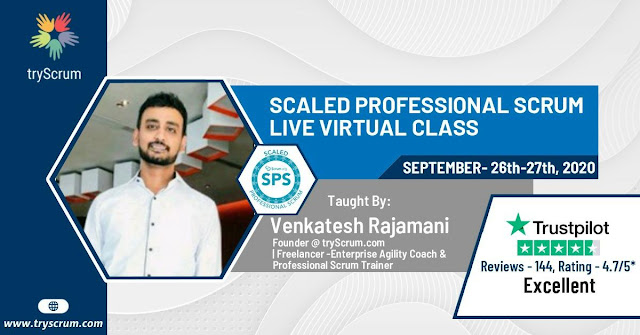In January 2020, I had a phone interview for an
agile transformation project with a leader from a Barcelona-based company who
was interested in agile coaching.
The interviewer asked me if I would like to launch
into a coaching conversation and I accepted.
For the next few minutes, I did my best to put on a
professional coach hat, although in the end, my attempt did not demonstrate the
capabilities that the transformation leader was looking for. What went wrong?
Parallel to the telephone interview, I was starting
my coaching program at ICF, an intensive 9-month program.
Part of the curriculum involved demonstrating
coaching ability and required recorded sessions to work with clients through
the coaching arc.
The organization I was trying to lead an agile
transformation with at the time had no experience in professional coaching
conversations.
Again, I hit a brick wall. I was frustrated and
started to take the issue personally. I know certified agile coach practices quite well;
why this coaching was so problematic to consolidate in an organization?
How do I see it
from my experience?

In my personal work experience, from start-ups to
large companies, I have rarely witnessed an agile coaching conversation in
action, rarely have I seen its use as a priority for organizational change.
The leader, whom I interviewed, was a rare treasure
buried in the sand. When I spoke to him about coaching skills, I was referring
to what the International Coach Federation (ICF) defines as collaborating with
clients in a creative process that invites reflection and inspires them to
maximize their personal and professional potential.
As part of client engagement, I am strictly
referring to the use of the coaching bow. We attach an image of that arch as we
understand it.
Since I have worked alongside several people who
call themselves Agile Coaches, most of the time I have not witnessed the arc in
action. I feel that the expectation of the Agile Coaching industry on paper is
different from reality.

The arc of a
professional coaching session
On the other hand, I frequently witness and come
across the other three positions of the Agile Coaching Competency Framework
many times. Those competencies are
teaching, mentoring and facilitation. Coaching is not present in most
occasions. Unfortunately, that's what they end up calling Agile Coaching.
I have also witnessed many times that organizations
assign a coach who imposes goals defined by the organization itself to their
coachee in question. This goes beyond the codes of ethics that professional
coaches have in the development of
their work.
Although the coaching competence is one more
quadrant of the framework, it does not mean that it does not have a code of
ethics.
Mentoring is usually the interpretation of many
organizations about what an Agile Coach does.
Regardless of agile maturity, if they have,
organizations seem to gravitate to and embrace the other three attributes
teaching, mentoring, and facilitation much more than coaching competence. Why
is this?
Some
observations on agile coaching
Again, through my observation, I believe that
organizations in the medium and low agile maturity ranges are not ready for
honest coaching conversations.
When executives employ an Enterprise Agile Coach,
this act generally indicates an acknowledgment that internal change must occur
within the system.
And an authentic coaching conversation will expose
gaps that some leaders want buried.
Exposure can reveal vulnerabilities and loss of
power for that leader, especially in a command and control type environment.
Real change scares some people. I have witnessed
firsthand how far some leaders go to maintain the business at hand and protect
their kingdom by cultivating the illusion of false control.
Most of the job openings for agile coaches focus on
mastery knowledge of agility rather than coaching posture.
If coaching conversations are a requirement, the
next time you see an open Agile Coach position, see what kind of language the
organization uses to describe core competencies.
Companies try to make up what they are not, yet the
job descriptions reveal their level of maturity for an Agile Coach.
What's more, many organizations try to sell an image
that they are agile because it gives them a differentiation in the market to
attract talent and business. Many times they do not even bother to define the
advantages that consolidating a good business agility practice would really
give them.
If your organization has a training budget, see what
happens if you request approval to take a professional coaching program, such
as CoActive or the International Coaching Federation.
The way the employer responds indicates the
organization's agile maturity and understanding of the role of an agile coach.
Conclusions
Over time, I have noticed a trend where most
organizations hire an agile coach but want an expert in mastering agility in a
specific area such as Agile Transformation, Scrum, Kanban, XP, or even SAFe.
One avenue is to elevate a Senior Scrum Master who has in-depth knowledge in a
particular area such as Scrum to an Agile Coach role. They end up seeing that
the Agile Coach is the head of the Scrum Masters and it shouldn't be that way.
Worse still when someone is given the title of Enterprise Agile Coach and they
see him as the head of the Agile Coaches who is also the head of the senior
Scrum Master. As you can see, they do not worry about the benefits that a good
implementation of agility can bring, using the Agile Coaching Competency
Framework for what it really serves, which is to know the skills of a change
leader and how they can transform them into consolidated competencies in the culture
of the organization.
Resource: https://www.scrum.org/resources/blog/es-hora-de-repensar-el-coaching-en-agile-coaching












